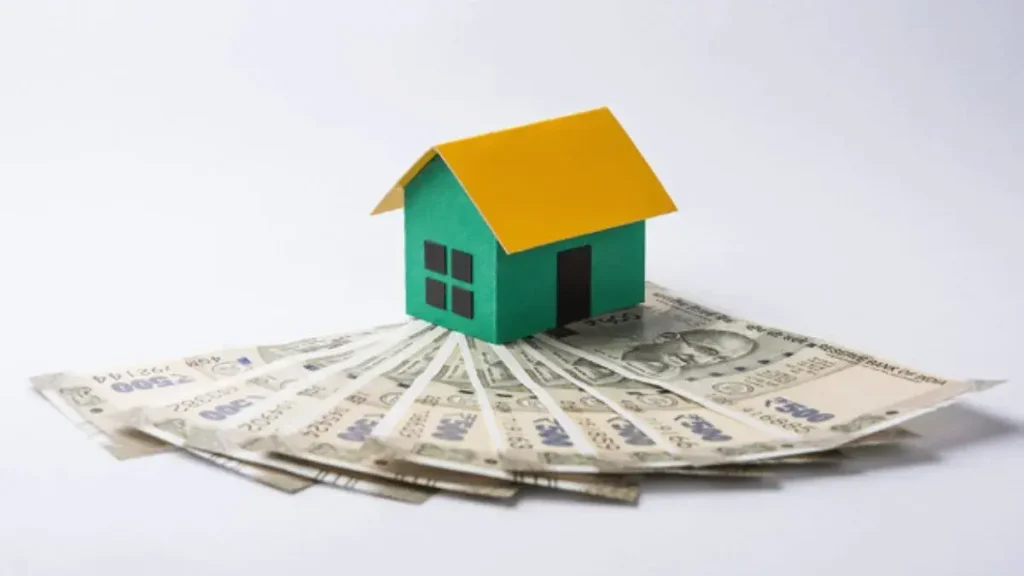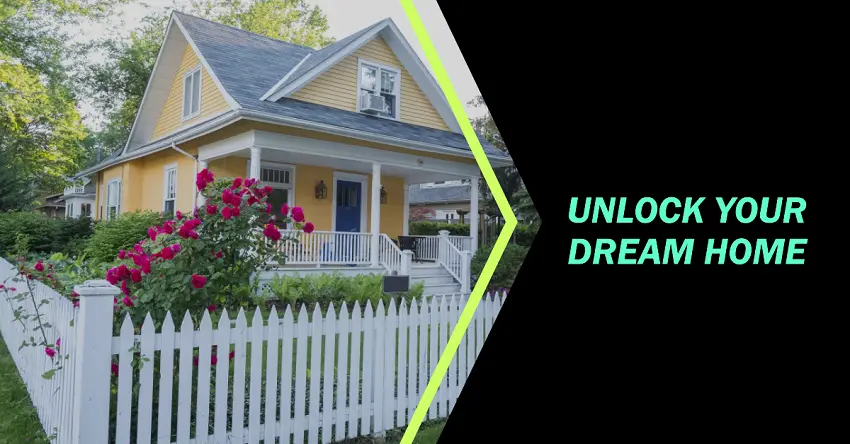Buying a home is a big step. Many people want to own their house. It gives you a place that belongs to you. You can paint the walls any color. You can hang pictures wherever you want. Your kids can play in the yard.
But buying a home costs money. You need to save up first. You also need good credit. Banks want to know you can pay them back. The process can seem hard at first. This guide will make it easy to understand.
We will talk about money. We will talk about loans. We will talk about finding the right house. By the end, you will know how to start unlocking the dream of homeownership.

Getting Your Money Ready
Before you buy a house, you need money saved up. You also need to show banks you are good with money. Here are the main things they look at:
What Banks Check
- Your monthly income: How much money you make each month
- Your bills: How much you owe on credit cards and loans
- Your credit score: A number that shows if you pay bills on time
- Your job: How long you have worked at the same place
- Your savings: Money you have in the bank besides the down payment
Making Your Credit Better
Your credit score matters a lot. A good score helps you get better loans. Here is how to improve it:
- Pay all bills on time: This is the most important thing
- Use less of your credit cards: Keep balances low
- Check your credit report: Look for mistakes and fix them
- Keep old credit cards open: This shows you have credit history
- Do not apply for new credit cards: Too many applications hurt your score
Banks want to see you handle money well. They look at the last two years of your money history. Start getting ready early.
Saving for Your Down Payment
The down payment is money you pay upfront. Most people think they need 20% of the house price. But there are other options. Here are different ways to handle this:
How Much You Need
- 20% down: No extra insurance needed, but costs more upfront
- 10% down: Good middle ground for many buyers
- 5% down: Lower upfront cost, but higher monthly payments
- 3% down: Some loans allow this small amount
Special Programs That Help
Many programs exist to help people buy homes. These can make unlocking the dream of homeownership easier:
- FHA loans: Only need 3.5% down payment
- VA loans: For military people, no down payment needed
- USDA loans: For houses in small towns, no down payment needed
- State programs: Your state might have special deals
- City programs: Some cities help first-time buyers
Where to Get Down Payment Money
- Save from your paycheck: Put money aside each month
- Family gifts: Parents or grandparents can give you money
- Sell things you own: Old car, jewelry, or other valuable items
- Side jobs: Extra work to earn more money
- Tax refunds: Use your yearly tax money
Start saving as much as you can. Even small amounts add up over time.
Types of Home Loans
Different loans work for different people. Each type has good points and bad points. Here are the main types:
Regular Bank Loans

- Fixed rate loans: Your payment stays the same every month
- Adjustable rate loans: Your payment can go up or down over time
- Jumbo loans: For expensive houses that cost a lot
Government Help Loans
The government backs some loans. This makes them easier to get:
- FHA loans: Good for people with lower credit scores
- VA loans: Only for people who served in the military
- USDA loans: For houses in rural areas outside big cities
Other Loan Options
- Bank statement loans: Use bank records instead of tax papers
- Asset loans: Use your savings and investments to qualify
- Owner financing: The person selling pays for part of your loan
Talk to different banks. Each one might offer different deals. Shop around to find the best one for you.
Finding the Right House
Location matters a lot when buying a house. A good location keeps its value. It also makes your life better. Here is what to look for:
Pick a Good Area
- Safe neighborhood: Low crime keeps your family safe
- Good schools: Important if you have kids or plan to have them
- Close to work: Short drives save time and gas money
- Stores nearby: Easy shopping makes life convenient
- Future growth: Areas that are improving go up in value
Check the House Itself
- Good condition: No major problems with roof, foundation, or pipes
- Right size: Enough rooms for your family now and later
- Good layout: Rooms arranged in a way that works for you
- Yard space: Outside area for kids, pets, or gardening
- Storage space: Closets, basement, and garage for your things
Think About Money
- House price: Can you afford the monthly payments?
- Property taxes: These vary by location and add to your costs
- Utility costs: Heating, cooling, and electric bills
- Maintenance costs: Older houses need more repairs
- Insurance costs: Some areas cost more to insure
Take your time looking. The right house is worth waiting for.
The Closing Process
Closing is when you officially buy the house. It happens after you agree on a price. There are several steps:
Before Closing Day
- Home inspection: An expert checks the house for problems
- Appraisal: The bank makes sure the house is worth the price
- Title search: Making sure no one else claims to own the house
- Insurance: You must have homeowner’s insurance
- Final walkthrough: One last look at the house before you buy
Closing Costs
You pay extra fees when you close. These usually cost 2% to 5% of the house price:
- Loan fees: The bank charges money to process your loan
- Title insurance: Protects you if someone else claims the house
- Attorney fees: A lawyer helps with the paperwork
- Recording fees: Government charges to record the sale
- Prepaid costs: First insurance payment and property taxes
Closing Day
- Sign papers: Lots of documents to sign
- Get keys: The house is now yours
- Transfer utilities: Put electric, gas, and water in your name
- Change locks: Make sure you are the only one with keys
Bring a cashier’s check for your closing costs. Regular checks are not accepted.
Taking Care of Your New Home
Owning a home means taking care of it. Good care keeps your house valuable. It also prevents big repair bills later.
Building Equity
Equity is how much of the house you own. It grows in several ways:
- Monthly payments: Part of each payment goes toward owning more
- Home improvements: Good upgrades add value
- Market growth: Houses in good areas go up in value over time
- Extra payments: Paying more than required builds equity faster
Regular Maintenance
- Change air filters: Every few months for good air quality
- Clean gutters: Keeps water from damaging your house
- Check for leaks: Fix small problems before they get big
- Service heating and cooling: Annual checkups save money
- Paint when needed: Protects wood and looks good
Money Management
- Budget for repairs: Set aside money each month for fixes
- Know tax benefits: Homeowners get some tax breaks
- Review insurance yearly: Make sure you have enough coverage
- Consider refinancing: If rates drop, you might save money
Common Problems and Solutions
Even good planning does not prevent all problems. Here are common issues and how to handle them:
Money Problems
- Job loss: Have savings for at least six months of payments
- Unexpected repairs: Budget 1% of home value each year for fixes
- Market changes: House values go up and down, but usually rise over time
House Problems
- Major repairs: Get quotes from several contractors
- Insurance claims: Know how to file if something bad happens
- Neighbor issues: Try to work things out, but know your rights
Market Changes
- Interest rates: They go up and down, affecting your buying power
- Home values: Local markets change, but good locations stay strong
- Selling later: Keep your house in good shape for better resale value
Smart Money Tips
Unlocking the dream of homeownership is just the start. Here are tips to stay successful:
Before You Buy
- Get pre-approved: Know how much you can borrow before house hunting
- Save extra money: Have cash left over after closing
- Compare lenders: Different banks offer different deals
- Check rates often: Interest rates change daily
After You Buy
- Make payments on time: Protects your credit score
- Pay extra when you can: Reduces total interest paid
- Keep good records: Save receipts for improvements and repairs
- Build an emergency fund: Have money ready for surprises
Long-term Success
- Review your situation yearly: Make sure everything still works
- Consider improvements: Some upgrades add more value than they cost
- Stay informed: Know what is happening in your local market
- Plan for the future: Think about how long you want to stay
CONCLUSION
Unlocking the dream of homeownership takes time and planning. Start today by checking your credit score and saving money. Learn about loan programs in your area. Pay bills on time and build good habits. Each small step brings you closer to owning your home. Your house will be more than a building – it will be your family’s foundation for stability, memories, and wealth building. Take the first step today.






